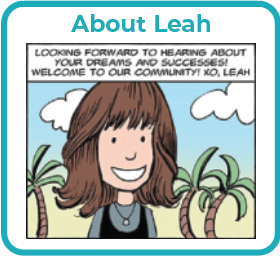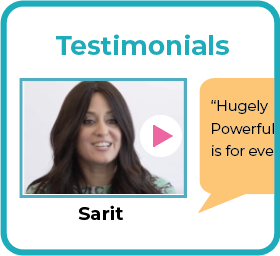Why Is This Pesach Different?
Get Rabbi Paysach Krohn’s latest book: At The Maggid’s Seder
This year it’s not only Pesach night that is different but the entire month! We are facing challenging times during COVID-19 – so many unknowns, so many worries and anxieties, so many challenges, whether physical, emotional, or financial, and so many restrictions, such as not being allowed to spend the Yom Tov together with family members! Yes, this Pesach is quite different from all other years and Rabbi Pasyach Krohn provided us with insightful insights on how to address Passover this year.
G-d Wanted A Higher Level of Caring Between His Creations
Rabbi Krohn began by explaining how the history of creation can teach us great lessons we can incorporate into our lives today. G-d created the world and after ten generations, G-d saw that something was wrong and sent the flood to start all over. G-d wanted there to be a higher level of caring between his creations and therefore needed to begin again.
During this time, we are all united throughout the world because we are in this together. However, we are also separated. There are no more trips to take, no clothes to buy for Yom Tov, no fancy dishes to purchase. Now is the time for us to use to reflect, to think about connecting to G-d & what G-d wants from us. To care.
It states in the Talmud that Moshe (Moses) and Noach (Noah) were totally different. The Torah introduces Noach as a righteous man. When Noach finally got to leave the arc, instead of dancing and feeling grateful, he planted a vineyard and got drunk. We see from this that after all he experienced, at the end of his life, he failed.
We All Have Potential For Greatness!
However, Moshe became the leader of the Jewish Nation. He saw a burning bush and the tree not becoming consumed by the fire. G-d saw that he turned to look because that is a reflection of Moshe’s personality that he looked at the problems of his brethren. Because of this trait, G-d made Moshe the leader. We all have potential for greatness! G-d will watch us to see if we notice the problems of others.
What does Pesach mean? Most people think it means to pass over. Rashi (a commentator of the Talmud) says that it means G-d had compassion for the Jewish people. We must begin caring, especially during these times. G-d chose Moshe because he cared and we must emulate that trait.
Rabbi Krohn told over the story of Rabbi Schwadron, who stayed at the Krohn’s home for six months. After Rabbi Krohn’s father passed, Rabbi Schwadron came to the Krohn family seder. There are many Jewish Laws, and people are careful to finish the afikomen (the last piece of matza) before halachic midnight. Rabbi Schwadron was especially careful in this custom and never finished after the proper time. Rabbi Krohn knew it was getting late and was nervous for his guest. He wanted to rush along the seder, but Rabbi Schwadron told him not to rush. The children continued to sing and soon midnight passed. After the meal, Rabbi Schwadron explained to Rabbi Krohn that he made an exception to his custom because the mother of the home is a widow and it gave her immense pleasure to hear her family enjoying themselves. He explained that the mitzvah of not paining a widow is a Torah law while finishing the seder on time is only a law from the Rabbis. Therefore, allowing the widow to enjoy her children and grandchildren takes precedence.
Remember a Jew Is Never Alone; G-d Is Always With Us
This year, we’re all separated from our families and it’s hard. There are many couples and singles who are on their own and there is an opportunity for them to elevate themselves. We usually rely on children to tell us all about what they learned, and this year we need to prepare extra. Remember a Jew is never alone; G-d is always with us. We can encourage each other by calling others and raising their spirits, give Passover ideas, share thoughts, recipes, or just to simply offer a listening ear.
A question was asked by an Instagram fan: What are some tips to keep children happy at the Passover seder, which can get long and dragged out for little ones?
Rabbi Krohn answered: This has been a conflict that has been going on for a very long time! At each part of the Hagaddah, it’s a good idea to allow only 1-2 thoughts to be expressed. There is also time to talk at the lunches and there is a second seder outside of the Land of Israel so there really is time for inspiring words to be shared. The Jewish Nation is a holy nation. We are an elevated people and we must act appropriately, and this year we can focus on that, more than any other time.
Another question was shared by a social media fan: How do people cope this year when they have a family member who is sick in the hospital?
Rabbi Krohn responded: Our thoughts have to be with them. We must pray and say Psalms. We must make the best sedar we can make and cannot let that destroy it. Make the most of the situation and thank G-d you are alive. Make the seder special. One day you will look back on this and see you didn’t fail!
A viewer wanted to know: There are women who have guilt pangs because so many people they know are sick or succumbed to their illness. What should our attitudes be?
G-d Saves People So They Can Do For Others
Rabbi Krohn shared: We have to be b’simcha (happy). Many asked after the holocaust asked why G-d singled them out to be saved? They didn’t understand how they were allowed to be happy with so many of their family and friends dead. We have to understand that G-d saves people so they can do for others. If we are here today, we have to know that it’s for a reason. Our goal should be to care for as many people as we can. By looking out into the world and trying to help others that will make us feel better!
Sarit wanted to know before Rabbi Krohn had to go: Can Rabbi Krohn give us an idea from the Hagaddah that Rabbi Krohn wrote, “At The Maggid’s Seder”?
Rabbi Krohn was glad to end off with one of his favorite stories written in the book: We are told that one of the main reasons we were able to go out of Egypt was in the merit of the women! There is a story about Rebbetzin Sheila Feinstein, who was the principal of a school in Staten Island. A Rabbi was on his way to work and unfortunately collided into an expensive car. He was rushed to go to work, so he got out and said to the women, “I will happily pay what I needed as this accident was my fault. However, I don’t have time to wait for police or to deal with the insurance. Can you please take the care for an estimate and I will pay the costs?” The lady sent the Rabbi the estimate, which is quite high so the Rabbi asked her if she could bring her car to his friend who works in a body shop to see if he could complete the job for less; she agreed. When the estimate for the repair was received, the Rabbi explained that he didn’t make such a high salary and asked if she would kindly lay out the cost and he would pay her back a set amount each month for a year. The lady agreed to that as well. When it came time for the last payment, the Rabbi asked the women if he could come to give her the final payment in person. She agreed. When he arrived he thanked her for being so kind throughout the process, but asked her why she was willing to go so above and beyond, trusting him when she didn’t even know him? The lady responded that she worked with Rebbetzin Sheila Feinstein, and once she saw that the Rabbi was from “her tribe,” she knew she could trust him. That’s what greatness is all about. We don’t always know how important and far-reaching our actions are. But we must know that whatever we do, whatever we achieve, whichever way we act, it will make an impact. So be happy, be grateful, and be caring. That is what Judaism is all about!
Get Rabbi Paysach Krohn’s latest book: At The Maggid’s Seder




















1 Comment